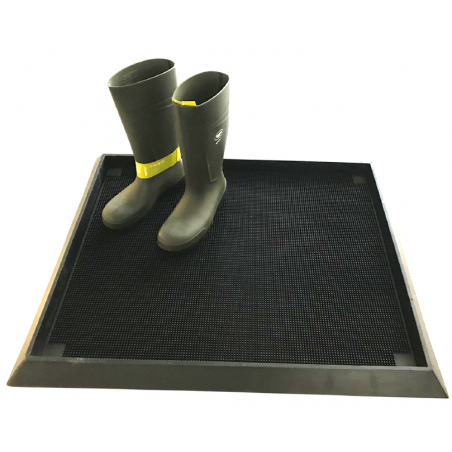The Global Control of ASF Initiative, recently launched under the GF-TADs umbrella, supports actors at every level to coordinate and strengthen control measures to minimise the impact of this complex and challenging disease.
Bringing together governments, industry and specialists, FAO and OIE will present the Initiative for the first time on a global stage as part of a Call to Action event (26-30 October).
The spread of ASF shows no signs of slowing down. The contagious disease has led to the loss of over 7 million pigs in Asia alone, since sweeping into this region. More than 50 countries in Africa, Asia and Europe are currently affected and the Americas are trying to prevent incursion into their territory.

As part of a week-long online event, government representatives, veterinarians, and specialists from around the world, will share knowledge and experiences on tools, approaches and state of the art research. Coordinated actions as part of the Initiative will build resilience utilising practical guidance, appropriate to specific needs and contexts.
Global control of ASF cannot be achieved by one sector or one country alone. Through a coordinated effort, all actors in the pig production chain joining the Global Control of ASF GF-TADs Initiative, can help to:
- protect the livelihoods of vulnerable communities
- safeguard animal health and welfare
- contribute to stabilising the pig production sector as well as meat and feed prices in regional and international trade and thus contribute to food security
- and ensure people access to nutrition to ensure healthy lives and promote wellbeing.
As part of the Global Control of ASF GF-TADs Initiative, FAO and OIE call on Members and partners to:
- Carry out national risk analysis and re-enforce risk management: including contingency planning, prevention, early detection, rapid response, and compensation policies to support industry recovery.
- Maintain a high level of awareness on ASF risk mitigation among farmers, veterinarians, butchers, hunters, input suppliers and other value chain stakeholders.
- Foster and support the implementation of good biosecurity practices, which are key to prevent further spread of ASF.
- Re-enforce and maintain border inspection for prevention of disease spread between countries through illegal practices such as the smuggling of pork, pork products and live animals during travel and migration.
- Finalise research, development and validation of potential vaccines against ASF as well as related vaccination strategy.
- Support the improvement of laboratory diagnostics and rapid screening tools for ASF.
- Develop a holistic approach to ASF control in wildlife - taking all pig-types into account.
- Foster solidarity and cooperation between countries with varying levels of experience, resources, and capacity for ASF prevention and control.
- Foster Public-Private-Partnership for investment in ASF risk mitigation and management.
26 october 2020/ FAO.
http://www.fao.org/






